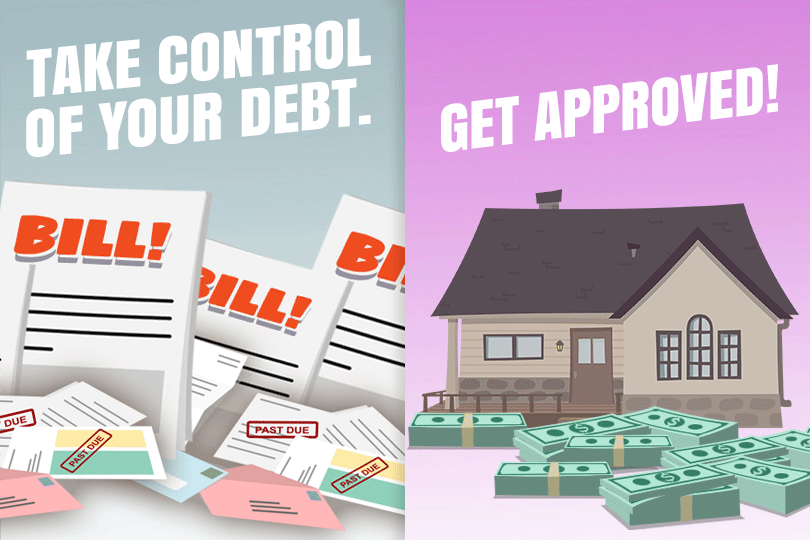Questions and Answers on Buying a Home with an FHA Mortgage
May 13, 2025
Can you use an FHA-insured mortgage to purchase a property you intend to rent out to others for income, rather than living in it yourself?
Generally, no. A fundamental requirement for an FHA mortgage is that the property must serve as your primary residence. Using it strictly as an investment property or a second home typically makes it ineligible for this type of financing.
What types of properties designed for short-term stays, like bed-and-breakfasts or properties frequently used for transient occupancy, are usually not eligible for an FHA loan?
Houses intended for transient occupancy, where brief stays are similar to a hotel or bed-and-breakfast setup, are generally not eligible. For example, you typically can't finance an Airbnb operation with an FHA mortgage. The FHA program is focused on stable, residential occupancy.
Can you still purchase a home with a standard FHA mortgage if it has significant problems, such as major structural damage or health hazards, or requires extensive repairs to be safe and livable?
A standard FHA mortgage requires the property to meet minimum safety, security, and structural soundness standards. If a property has significant issues that prevent it from meeting these standards without extensive work, it typically cannot be purchased with a standard FHA loan. However, a different FHA program, the 203(k) rehabilitation loan, is specifically designed for properties needing repairs.
Are all manufactured homes eligible for FHA financing regardless of when they were built?
No, the age of a manufactured home is a factor. Manufactured homes built before June 15, 1976, are generally not eligible for FHA-insured mortgages. Newer manufactured homes must meet specific requirements to qualify.
Can the location of a property, such as being in a flood zone or near certain potential environmental hazards, affect its eligibility for an FHA mortgage?
Yes, location can impact eligibility. Properties in certain designated environmental hazard areas or those situated too close to specific potential risks, like pipelines or high-voltage lines, may be deemed ineligible if the hazards cannot be addressed or if necessary insurance is not available. Also, condominiums must be part of an FHA-approved complex.
Would a property with an untreated environmental issue, like significant mold growth or lead-based paint in poor condition, likely qualify for an FHA loan without the issues being addressed?
No, properties with unmitigated health and safety hazards, including significant mold or chipping and peeling lead-based paint, typically will not qualify for an FHA loan until these conditions are corrected to meet FHA minimum property standards.
Is a condominium unit automatically eligible for FHA financing because it's a residential property?
Not necessarily. Individual condominium units are eligible for FHA-insured mortgages if the entire project is on the FHA's approved list, can be added to the list, or qualifies for an exemption.
If the project is not approved, or has certain characteristics like being a condo-hotel or having restrictive covenants that don't meet FHA guidelines, units within it may not qualify for FHA financing.
If a property relies on a water source like a spring, lake, river, or certain types of wells (sand-point or artesian), is it automatically eligible for an FHA mortgage?
Properties with these types of water sources can face eligibility issues. They may not be approved unless they meet specific FHA requirements, often including testing and verifying a safe and reliable water supply that meets local health authority standards.
Can you use an FHA loan to purchase a property where a significant portion of the square footage is used for a commercial business, even if a residential unit is included?
While some mixed-use properties might be considered, an FHA loan is primarily for residential use. If the non-residential portion of a mixed-use property is too dominant, it may not meet FHA guidelines.

FHA Loan Articles
March 11, 2025Adding a co-borrower to your FHA is a way to offset fears that you won't qualify for the mortgage on your own. An FHA loan co-borrower with a more substantial financial profile may offset the primary borrower's weaknesses, demonstrating a reduced risk to the lender. But for an FHA loan, don't assume that one borrower with good credit scores can offset one with non-qualifying scores. We ask 20 questions about co-borrowing to help you better plan for your FHA loan.
March 10, 2025Even if you aren’t considering your home loan options right this second, it’s smart to know your options if you decide to pursue a new home later. To that end, using a mortgage calculator is a smart choice for setting some basic budgeting parameters as you plan your path toward home ownership. A mortgage calculator helps you plan for future financial scenarios, such as buying new or refinancing a current home.
February 27, 2025 Buying your first home can feel overwhelming, especially when you start hearing terms like "subprime mortgages" and "FHA loans." Understanding these options is crucial for making the right decision. Subprime mortgages are designed for borrowers with less-than-perfect credit histories. This might include past issues like late payments, loan defaults, or even bankruptcy...
February 26, 2025Buying your first home can be exciting, but the mortgage process often throws a curveball of unfamiliar terms. Here are answers to common questions first-time homebuyers have about mortgage jargon and terms.
February 18, 2025Mortgages typically require mortgage insurance and homeowners insurance. They are both key parts of your home loan but they serve very different functions. Do you know the differences between the two? Find out how ready you are to begin the process of buying your new house.







